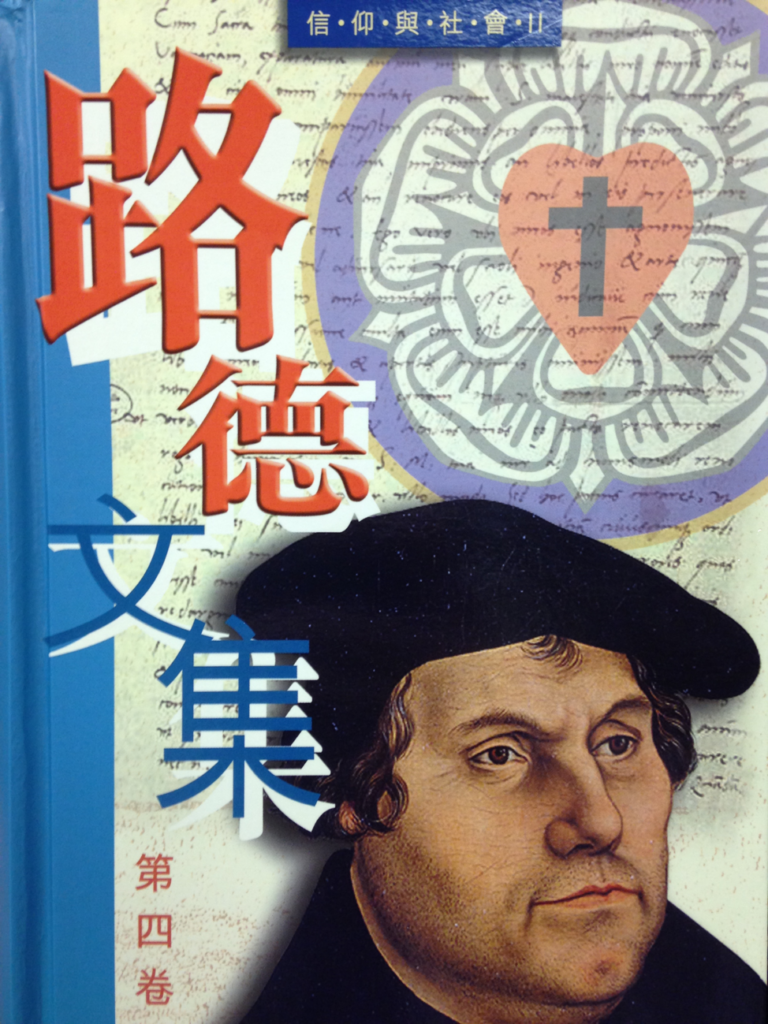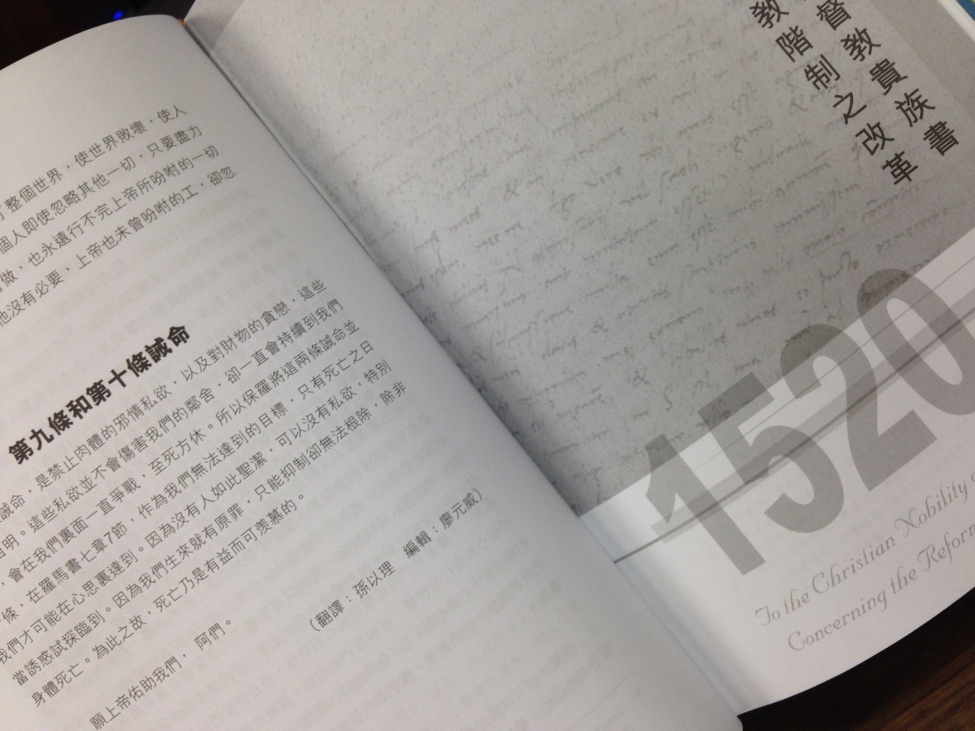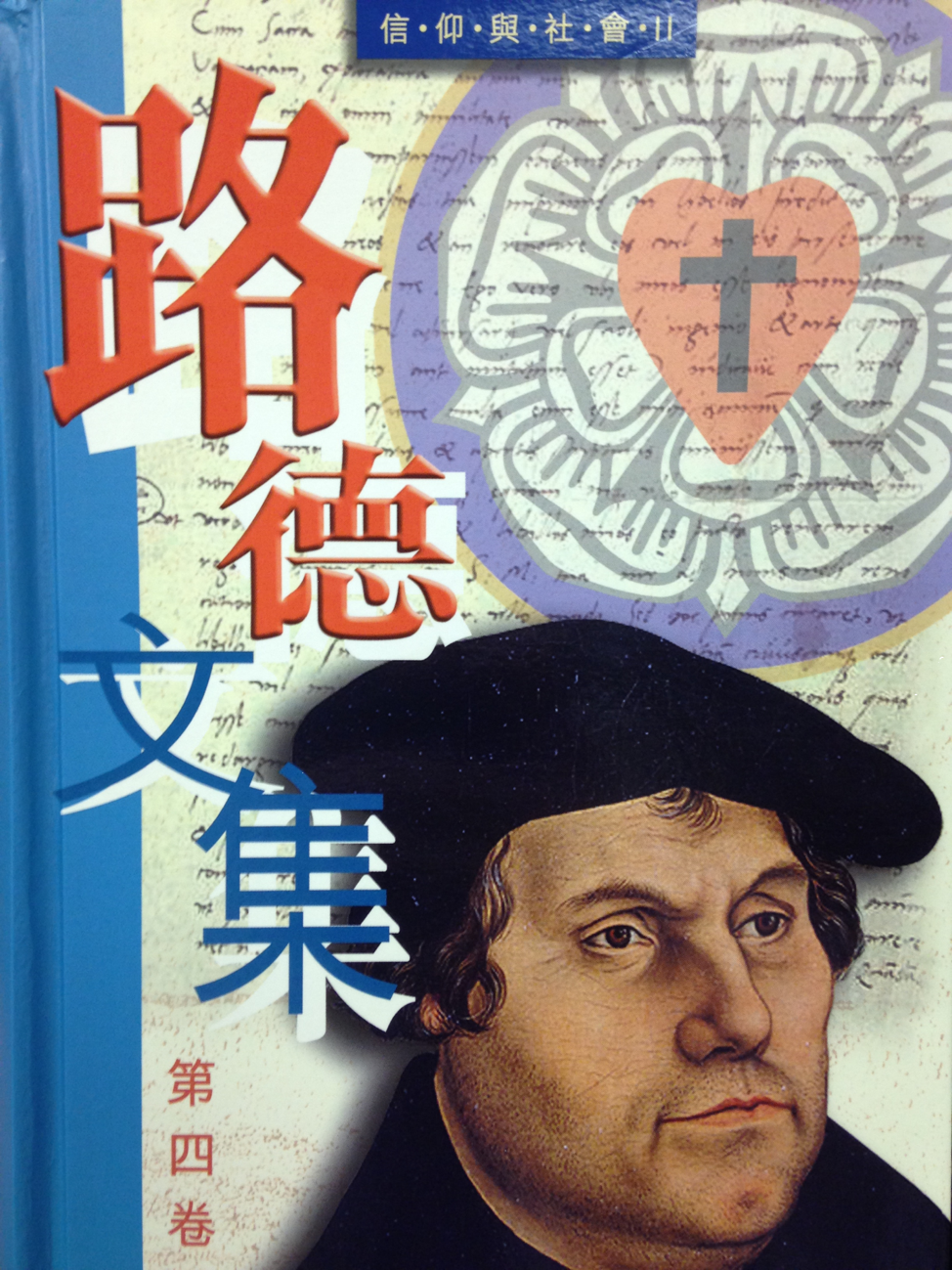 On Reformation Sunday, this verse from the Apostle John’s Revelation is often read, “Then I saw another angel flying directly overhead, with an eternal gospel to proclaim to those who dwell on earth, to every nation and tribe and language and people” (Rev. 14:6, ESV). We in the English-speaking world have long enjoyed in our own tongue not only the Scriptures but also the writings of Martin Luther. We dare not take for granted the theological, cultural, political, and financial efforts that went into producing these resources by which the Lord Himself has brought His eternal Gospel to us. But what about all the other nations and tribes, languages and people groups across the world? What about the approximately 1.2 billion Chinese speakers—how much Luther do they have in their language?
On Reformation Sunday, this verse from the Apostle John’s Revelation is often read, “Then I saw another angel flying directly overhead, with an eternal gospel to proclaim to those who dwell on earth, to every nation and tribe and language and people” (Rev. 14:6, ESV). We in the English-speaking world have long enjoyed in our own tongue not only the Scriptures but also the writings of Martin Luther. We dare not take for granted the theological, cultural, political, and financial efforts that went into producing these resources by which the Lord Himself has brought His eternal Gospel to us. But what about all the other nations and tribes, languages and people groups across the world? What about the approximately 1.2 billion Chinese speakers—how much Luther do they have in their language?
Prior to 2003, the answer would have been “not much.” Since then, a team of scholars, churchmen, and publishers have been working on “letting Luther speak Chinese,” as Dr. Henry Rowold, an emeritus member of our faculty, says. Dr. Rowold has invested most of his career in proclaiming and teaching the Gospel to Chinese-speakers. Guided by the initial vision of Dr. Won Yong Ji, an emeritus professor of Concordia Seminary now among the church triumphant, a whole team has been working on producing a set of Luther’s Works for those who can read Chinese. Earlier this fall, volume four was released.

The latest addition to the series has been entitled “Faith and Society II” and contains much of Luther’s thought on the reformation of society, including “To the Christian Nobility of the German Nation Concerning the Reform of the Christian Estate” and other writings on marriage, state craft, and education. How is this Chinese Luther being received? Not only are Chinese Lutherans overjoyed to read Luther in their own language, but non-Lutheran Chinese Christians are increasingly coming to appreciate the clarity of the Gospel that they read in Luther.
The interest in these new publications extends even beyond the church. The volumes are making their way into the hands of Chinese academics. When asked the reason for this, a Luther scholar from China points out that, “Luther allows the Chinese to put ‘reform’ on the table.” In a society marked by high change in the last decade, the Chinese are finding Luther an interesting conversation partner. There also seems to be a historical fascination with the Luther who bucked the hierarchy and championed popular language and national character. Nearly 500 years after that young German monk tacked a few thoughts on a church door to point people to Christ and to challenge them to radically love their neighbor, he’s still doing it today. Yes, it’s pretty fitting that we read Revelation 14:6 on Reformation Sunday.


Leave a Reply
You must be logged in to post a comment.